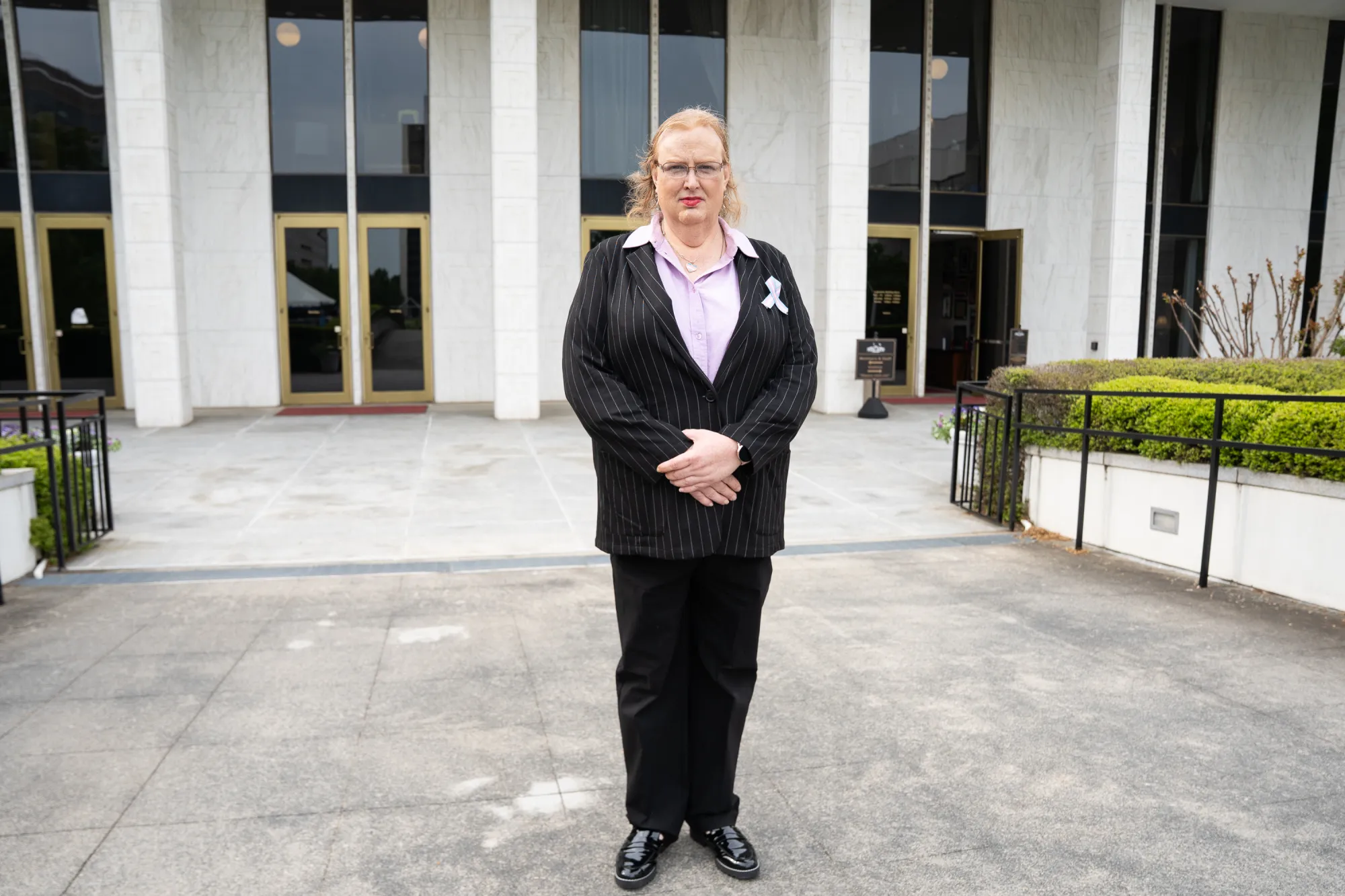Photo credit: Angelica Edwards, INDY Week
Paige Sullivan maintains the data storage system for a consortium of hospitals and universities studying orthopaedic trauma. Next month, her position will cease to exist.
By Jane Porter, INDY Week
Originally published April 17, 2025 at https://indyweek.com/news/wake/a-raleigh-software-engineer-will-lose-her-job-in-medical-research-due-to-usaid-cuts/
After working for private sector companies like Cisco and IBM, Raleigh resident Paige Sullivan took a position as a software engineer on an orthopedic trauma research team at Johns Hopkins University five years ago. The job came with good benefits, including the option to work remotely, but also a $40,000 pay cut.
Sullivan felt it was worth it.
“I wanted to do something in my career for the greater good, bigger than me, not just working to make somebody else, some shareholder, more money,” she says. “I wanted to do something to give back. That’s just who I am.”
As a programmer analyst for the Bloomberg School of Public Health, Sullivan oversees the operation of a software system where data for various studies from the Major Extremity Trauma Research Consortium (METRC) Coordinating Center, housed at Johns Hopkins, is entered and stored. Researchers then analyze that data with the goal of publishing their findings. Most of the studies are funded with U.S. Department of Defense (DoD) grants, and METRC, founded in 2009 with funding from the DoD, works with more than 80 civilian and military trauma centers on research for orthopedic trauma studies.
One of the studies focused on how to prevent blood clots from forming following a broken leg. Another looked at using antibiotic powders in wounds to prevent infections. The studies were geared toward soldiers who sustain injuries in combat, Sullivan says, but the public nature of the research means that their findings also benefit civilians. Many of the studies’ findings are now practically applied.
But Sullivan doesn’t work on the medical side.
“My responsibility is, I maintain the computer system that all the research data goes into during the collection process,” Sullivan explains. “People log in, fill out a form. We ask them all these questions, about the patient, how they’re healing, what kind of injury they had.”
On May 12, Sullivan’s position will end, one of the casualties of the federal government’s cuts to the U.S. Agency for International Development (USAID). She’s not sure how the work will continue after she and some of her other team members are gone.
“I stay busy,” she says. “Every research study is a little different, so there’s a question about who’s gonna make those changes, add those modifications into the [software] system …. I’m just handing it off to my boss, spending the next four weeks just documenting everything.”
Sullivan’s expertise is with the REDCap (Research Electronic Data Capture) system, software that was created in 2004 at Vanderbilt University, and Sullivan says she wants to find a position where she can keep using it. But the National Institutes of Health provide funding for development and ongoing support of REDCap, so Sullivan wonders if that will eventually go away, too.
Sullivan is looking for a new job, but she says competition is steep and more federal government layoffs won’t help the situation. Once her position ends, Sullivan can file for unemployment, but those benefits are paltry at $350 per week for just 12 weeks. They won’t cover her monthly child support payment.
“It’s just one more thing,” Sullivan says. “It would be nice to have a break. I thought I did [have one], everything in work was going great, everything in my life was lining up. And then the rug gets pulled out from underneath me.”
While she’s looking for a new job, Sullivan, who is transgender, plans to channel her energy into advocacy work and opposing state-level attacks on LGBTQ rights, reproductive rights, DEI, and free speech. When we meet, she’s on her way to a committee hearing at the legislature to speak out against House Bill 636, a book-banning bill named “Promoting Wholesome Content for Students.”
Sullivan says she plans on being at the General Assembly a lot this summer, as time allows.
“I’m looking for a job. It’s gonna take time. So why not?” Sullivan says. “I’ve been saying for years, if you want to make a change, you gotta go out and do it yourself. Get down there.”

